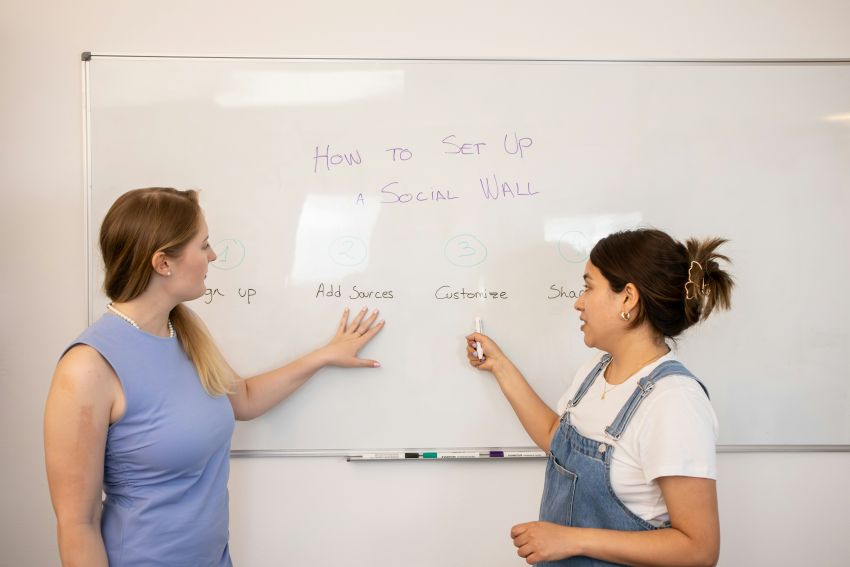A good friend of mine in Xalapa, a fellow paisano, has been frustrated with how long it’s taking her to learn Spanish.
“Well, you’ve got to make friends with Mexicans who don’t speak English!” I say. I’m mostly teasing, but it’s also true. If people are excited about speaking English with you, you’re just not going to learn Spanish too fast. The point is to talk to people who don’t speak your language so that you have no choice but to put yourself through the long and necessary humiliation of learning the new one.

Now, I don’t blame my friend for being friends with English speakers. She is lovely and worth getting to know. People sense this, so they are willing to use their second language in order to accomplish it, and I’m sure they’re glad they did.
But when most of your Mexican friends are pretty good English speakers, it limits your ability and your will to practice Spanish.
Something less discussed? It limits your ability to get to know large swaths of the culture, and public sentiment, too. Sure, your Mexican friends might tell you — in perfect English — all about “typical Mexican life.” I see evidence of this in the comments section often. “Well, my neighbor who is Mexican says that everyone in Mexico knows [former president] AMLO is just as bad as the rest!”
Not to insult anyone’s neighbor, but unless they happen to be a statistician, that is actually not knowledge that can be reliably trusted. I’m not saying their opinions are wrong. I’m just saying that their opinions are opinions and not necessarily indicative of a homogenous Mexican belief about something. This is a diverse place, and Mexicans who speak perfect English are the outliers, not the norm.
Most Mexicans who speak English are, at least by Mexican standards, fairly well off. Though I can’t speak for major tourist destinations, I know that in much of Mexico, one’s ability to learn to speak English fluently in public schools is pretty close to nil. This isn’t an insult to Mexican public schools. U.S. students mostly don’t learn other languages in their schools fluently,either.
That’s because it takes a lot to learn to get by in a language, and so much more to get fluent in a language. I myself was incredibly motivated studying Spanish in college, and took two years of steady classes, determined to master Spanish.

Was I able to utter a single coherent sentence once I got to Mexico? Ha. Ha ha. No. The answer is a resounding no. The only reason my Spanish is as good as it is is because I had the level of privilege necessary to study abroad. I didn’t have to work or earn money; my only “job” was to participate in the program that had been set up specifically for that purpose. I lived with host families who didn’t speak English. I went to school with people who didn’t speak English. I had to get all the things done I wanted to do — you guessed it — with people who didn’t speak English.
So now let’s think about this going the other way. Most English teachers in public schools in Mexico are not native English speakers. That doesn’t mean they can’t be good teachers, of course, but Mexican public schools are by no means bilingual schools.
Bilingual schools are invariably private, and only about 10-15% of students can afford to attend private school, which, importantly, are not necessarily schools in which students learn English. The kids in my daughter’s private school, for example, take English every year. Even so, most of them are in even worse shape linguistically than I was when I first arrived in Mexico. This is fine, honestly. None of us are sending our kids to this school because we want them to become fluent in English. If that were the goal, they’d be at the truly bilingual American school.
And if a private school is bilingual, it’s more expensive. If it’s bilingual and kids graduate from it actually being able to functionally speak English, it’s likely that it’s the most expensive school in town.
Conclusion? The Mexicans you know who speak perfect English — again, I’m exempting tourist areas in which I’ve never lived because I simply don’t know — are mostly from elite families. As a former English teacher for many years to students of all ages, I feel pretty confident in this assertion.
Why? Well, firstly, Learning to speak another language naturally is easiest when we’re children because of how our brains develop. And even so, it takes work. If someone is speaking their second language fluently, they almost certainly learned it as a child. Secondly, It is hard, hard, hard to learn a second language as an adult. Even when adults are extremely motivated, it’s more work once our brains are “set.” Most adults also have things they need to do besides learn a new language.
Without full focused immersion, even getting to a functional level in which you can both understand others and be understood is an uphill battle. I say “focused” because it’s possible to be immersed and still not learn a whole lot because you’re, say, working two jobs to send money back home to your family.
And look: I’m not saying there’s anything wrong with elite families. We all do everything we can for our children, and if we can give them the gift of learning a very useful language, of course we will. It would be ridiculous not to!
Still, I’d take it with a grain of salt when they assure you what “all Mexicans” are like or believe. If you’re richer than 90% of the population and have been afforded all the privileges that come with it, then by definition, you do not live like an “average Mexican.”
The conclusion I want people to draw from this is not that they shouldn’t make friends with people who are well off or who speak fluent English. Lots and lots of people are worth making friends with, and the language you do it in is not the most relevant thing.
But if you really want to learn Spanish, try seeking out people who don’t speak your language. You might even meet someone in the 70% of citizens who think Claudia’s doing a good job.
Sarah DeVries is a writer and translator based in Xalapa, Veracruz. She can be reached through her website, sarahedevries.substack.com.
